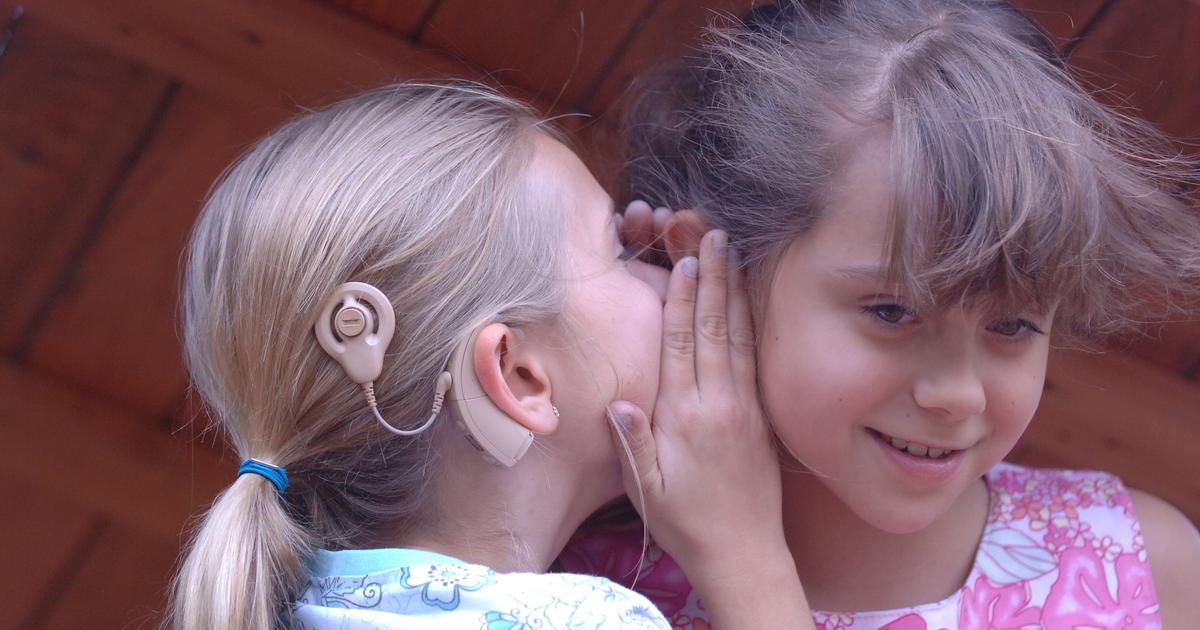How To Treat And Manage Pendred Syndrome
Pendred syndrome is a type of rare genetic disorder characterized by hearing loss and the development of goiters. Individuals who have Pendred syndrome are typically born with it, though it is possible for it to not display symptoms until later in life. In most cases of Pendred syndrome, patients deal with hypothyroidism, a type of decreased thyroid gland function that causes weight gain and fatigue. A cure for Pendred syndrome does not exist, but several treatments can help diminish the severity of the condition. If you or a loved one has Pendred syndrome, talk to the doctor about these helpful treatments.
Avoid Contact Sports

The inner ear in patients with Pendred syndrome has widened vestibular aqueducts that make them very sensitive to trauma. Any jarring to the head or blows to the ears can be enough to worsen hearing loss. Because it is so dangerous for an individual with Pendred syndrome to end up in any situation with head trauma, all types of contact sports should be avoided. This includes both sports where participants tackle each other and sports where there is the risk of getting hit in the head with a ball. At younger ages, gym games like dodgeball, tee ball, or flag football can be problematic. As children get older, they also need to avoid contact sports like football, cricket, soccer, rugby, baseball, and lacrosse. Avoiding these types of dangerous sports can greatly reduce an individual's chance of suffering from a drastic hearing loss at a very young age.
Continue reading for more on managing Pendred syndrome.
Wear Head Protection When Active

Pendred syndrome is more likely to cause hearing loss in patients with head trauma. Though all individuals will have some hearing loss, Pendred syndrome patients who get head injuries tend to have far more severe hearing problems. Unfortunately, it is impossible for most individuals to avoid anything that could cause a head injury. Even if an individual stays away from rough sports, they could end up slipping in the snow while jogging, falling off a bicycle, or getting hit in the head with a tennis ball. You can take steps to reduce the risk of head trauma by making sure you wear head protection when active. A basic helmet is helpful, but something that goes down a little farther over the ears is ideal. By wearing head protection during any activity that could damage the head, you may be able to preserve some hearing capabilities.
Get to know more treatments and management tips for Pendred syndrome.
Avoid Activities With Risk Of Barotrauma

Barotrauma is a special type of trauma caused by sudden changes in pressure. We may not notice it, but humans are typically surrounded by pressures within a certain range. If the air pressure becomes suddenly lower or higher, it can cause an imbalance between internal and external pressure that puts a lot of strain on the ears. The average person typically only notices this when they are flying in a plane and their ears hurt, but for a patient with Pendred syndrome, it is important to pay more attention to changes in pressure. Strong pressure changes can damage the ears and cause more hearing loss. Individuals with Pendred syndrome have reported hearing loss after flying on airplanes, and other activities like scuba diving or having hyperbaric oxygen treatments may not be advisable. Fortunately, it is mostly easy to avoid activities with risk of barotrauma. All it requires is a few changes to travel plans and the avoidance of a few types of hobbies.
Keep reading to reveal more about managing Pendred syndrome.
Learn Communication Skills Early

Language acquisition can be fairly challenging for individuals who are born deaf or already have severe hearing loss in childhood. It is easier for children to learn various languages and communication skills when they are younger, so it is a good idea to learn communication skills as early as possible. Parents should both speak and sign to their children from an early age. Encourage children to talk as much as possible, so they can more easily speak when their ability to hear changes. It may be helpful for patients to work with a speech-language pathologist who can provide tips for communicating with hearing loss. These types of language skills are very important because it will be easier for a child to cope with hearing loss if they already have alternative methods in place. This will reduce quite a lot of frustration later in life.
Continue to learn about more methods of managing Pendred syndrome.
Use Of A Cochlear Implant

Thanks to the development of cochlear implants, it is possible for individuals with hearing loss to regain their sense of hearing. Use of a cochlear implant is normally only recommended for those with severe hearing loss since it is an invasive procedure, so it is not for everyone with Pendred syndrome. During the cochlear implant process, an electronic device is inserted into the cochlea of the ear. This implant bypasses the parts of the ear that are too damaged to function, so it directly transmits sounds to the brain. There are some risks of tinnitus or dizziness following implantation, but this is typically minimal. A cochlear implant may be particularly beneficial to children dealing with research loss. Research shows children who get an implant have an easier time developing spoken language.
